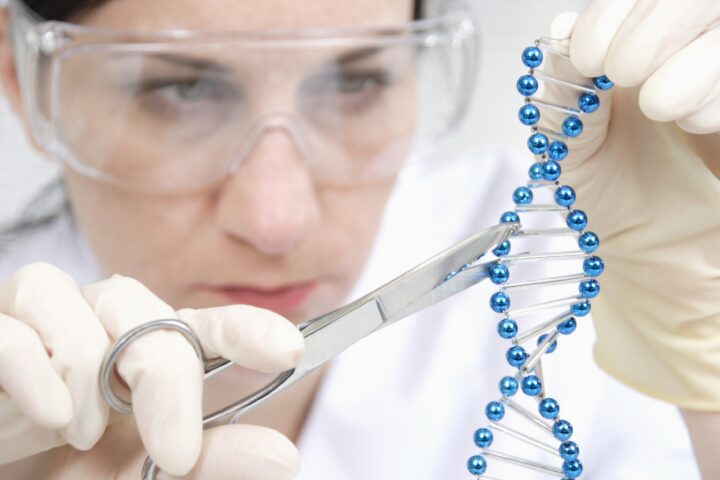
Genome editing for animal welfare
British researchers were able to use genome editing to create single-sex litters in mice. In the future, the same technique could also be used to specifically breed only female chicks. This would prevent the killing of male chicks. But to do this, genome editing would also have to be permitted in animal breeding.
Wednesday, December 8, 2021
The "BauernZeitung" reports on genome editing in animal breeding. Researchers in Great Britain have succeeded in breeding mice either exclusively male or exclusively female. With the CRISPR/Cas gene scissors, they were able to deactivate a gene so that female or male embryos stop growing at a very early stage of development. In the future, the findings could also be used in the breeding of farm animals - for example in the breeding of laying hens. It is currently common practice to kill male chicks because they do not become laying hens. With the help of genetic scissors, chick-killing could soon be a thing of the past, as the sex of the chicks can be determined in advance. But it will take several years of intensive research before the process is ready for approval.
Dual-purpose chickens: More feed, less yield
At its assembly of delegates, Bio Suisse spoke out in favor of a ban on the killing of chicks as of 2026. At the same time, the so-called in-ovo technology for sex determination was also banned. The technology can be used to determine the sex of the chick in the hatching egg. In male embryos, incubation of the egg can then be stopped. With this decision, Bio Suisse is focusing on the dual-purpose chicken. Females become laying hens, the meat of males can be used. In terms of sustainability, however, the dual-purpose chicken fares poorly. Laying hens lay fewer eggs and the roosters put on less meat than modern broilers. In addition, dual-purpose chickens need more feed than high-performance chickens. The productivity of the chickens decreases when there is a greater need for feed.
Genome editing would actually be the ideal solution for Bio Suisse. Both the chick-killing and the sustainability problems of the dual-purpose chickens could thus be prevented. Treatment with genetically modified vaccines could also prevent animal suffering. But Bio Suisse firmly rejects genetic engineering. To the detriment of sustainability.
Sources
Genome editing for livestock farming
Genome editing can also be generally beneficial in animal breeding: With better genetics and more feeding efficiency, global warming can be significantly influenced. Furthermore, animals can be given resistance to viral diseases.Related articles

Genetic scissors for the future – soon in Switzerland too?
Genome editing is seen as a promising way to make agriculture more sustainable and climate-resilient. But Switzerland is hesitant to approve it. A popular initiative even wants to ban it. But what can CRISPR really do?

Less than 50 percent: How Switzerland is squandering its self-sufficiency
Swiss agriculture is under enormous pressure. Extreme weather conditions, pests and increasingly stringent regulations are putting producers under strain. As a result, self-sufficiency is falling dramatically, especially for plant-based foods. To ensure food security in Switzerland, effective plant protection products are urgently needed.

Only half the truth in the genetic engineering debate
Those who only see the risks remain blind to the opportunities offered by a new technology. Opponents of genetic engineering have presented a new survey on new breeding methods, which reveals some telling gaps.

«The FOAG is abandoning productive agriculture»
Increasing pests, missing tools, growing bureaucracy – the farmers' criticism of the federal government is loud and clear. Swiss agriculture is at its limit, reports Blick. The demand: effective plant protection products are urgently needed again.

